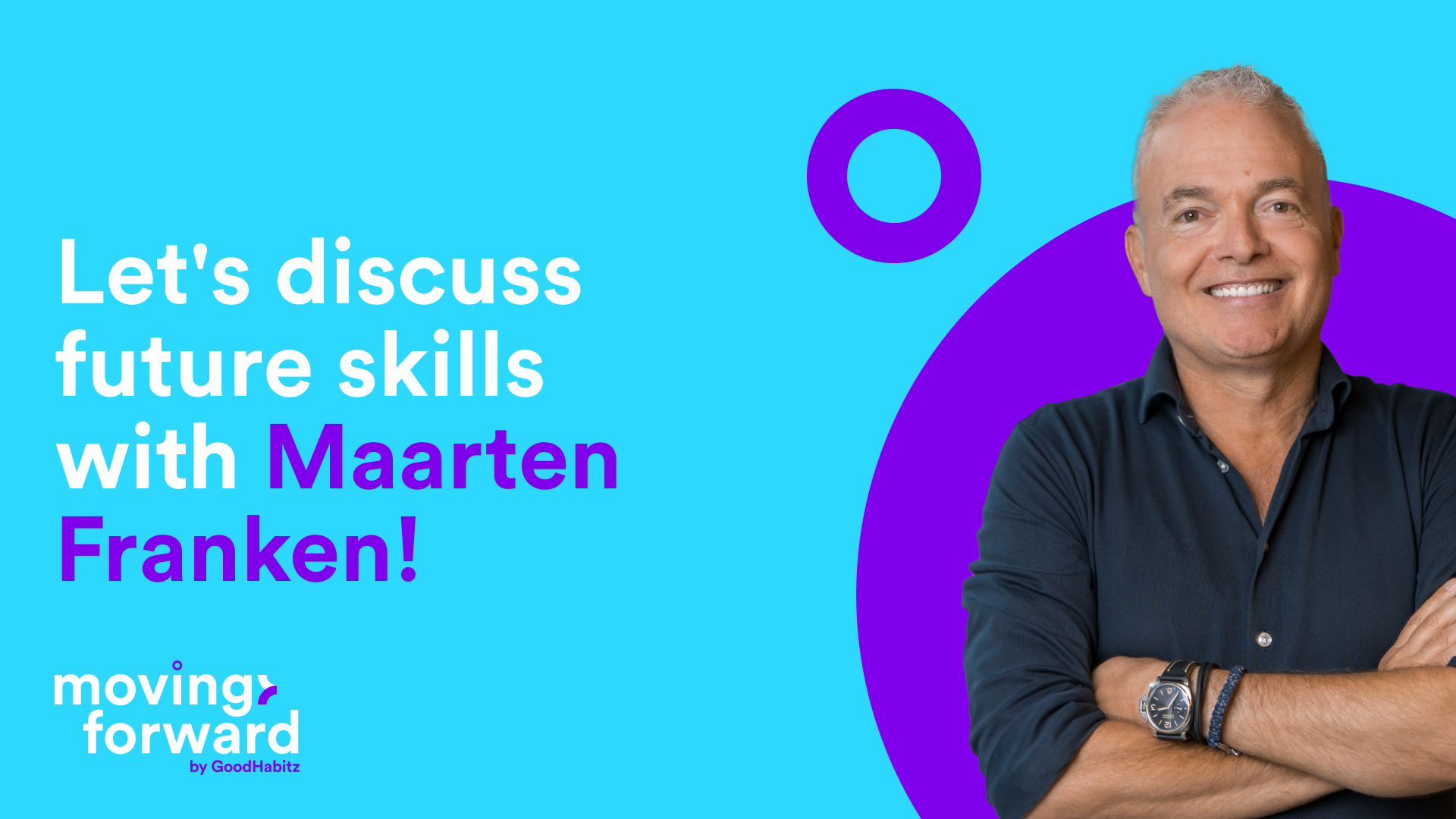Moving Forward on future skills
with Maarten Franken.
Future skills, they’re a priority for almost every L&D department. But what are actually the skills of the future? And where should you best focus your efforts and L&D budget? In this podcast episode, we posed four statements on this topic to Maarten Franken, one of the founders of GoodHabitz. Listen the full episode here or read the key takeaways below.
In the hiring process, it shouldn’t be one or the other, according to Maarten. “Let’s say you want to hire a cameraman in your organisation. In that case, you want to hire someone who has the knowledge and hard skills to operate a professional camera. But then, if he only knows how to do the job and doesn’t collaborate with his colleagues, you’re not going to be happy with his performance. The other way around, if you hire someone with great soft skills that collaborates very well with the team but doesn’t know anything about handling a camera, you’ll end up with a very bad cameraman who is a great team player. So, both soft and hard skills go hand in hand.”

This means that, in hiring, you should probably focus on the hard skills first and develop and train your employees on the soft skills part. This is mainly because Maarten believes that the human factor will become more important in the upcoming years, due to technological innovations and the effect they will have on the way we work and collaborate within organisations. All this means that organisations and their employees have to focus on building a more agile and creative mindset. Change will happen at a high tempo. To be able to keep up with the coming changes, you need to develop the soft skills that show the best way to handle them, or you’ll become outdated.
Maarten: “I agree with that statement completely. However, let me explain it with an example. Imagine you hired two marketeers with certain specific hard skills. Now, let’s say they’ve been working within the company for one to three years. They know their profession very well because they are well-trained. Now, let’s look at how their careers develop. Who’s getting the promotion? Who’s getting a higher salary? Who is making a career for themselves within the company? Probably, it won’t be the people who have the best hard skills in marketing. It will be the people who inspire best, who have the most creativity, who work best with their colleagues, and who have a positive influence on others. So, these people don’t get promoted and grow within the company because of their hard skills but because they can collaborate and plan with their colleagues to reach certain goals. And that is all about soft skills.

Being involved in learning and development his entire professional career, Maarten has always been on the lookout for new and engaging ways of learning. However, the current landscape is evolving more quickly than ever. “What you now see with AI coming up is that there is a huge opportunity on the one hand to improve the personalisation of learning. That way you can fit the learning content to the needs of the individual learner.”

“On the other hand, we’re taking a new step into how we actually learn. For instance, imagine practising a bad news conversation. Nowadays, you can practise already with your computer before entering the real conversation. This can really help you to become less insecure while having the same talk with real people.”
This doesn’t mean that Maarten doesn’t believe in practical training anymore. “Sure, you can practise with your computer, and they can give very smart, real life and creative answers. But doing the real thingand seeing tears in the eyes of the person across the table from you is a different experience. So, yes there’s a lot we can learn from AI and with computers. But there is also a lot they cannot help you with in terms of learning.”

The current landscape of L&D is shifting. Which, according to Maarten, also leads to the fact that companies that are a little less agile have difficulties getting on board with the new ways of learning. “I remember five years ago; everyone was still focussed on filling the library of their learning management system. While now, we are going much more into the direction of personalisation to make an impact on the learner and see them achieve measurable goals. This changes the role of L&D professionals because they become obligated to offer personalised learning to every single individual in their organisations.”

Want to listen to
the full podcast episode?
Discover more of Maarten Franken's insights, tips and tricks in our podcast episode 'Future skills, and how to train them best'.